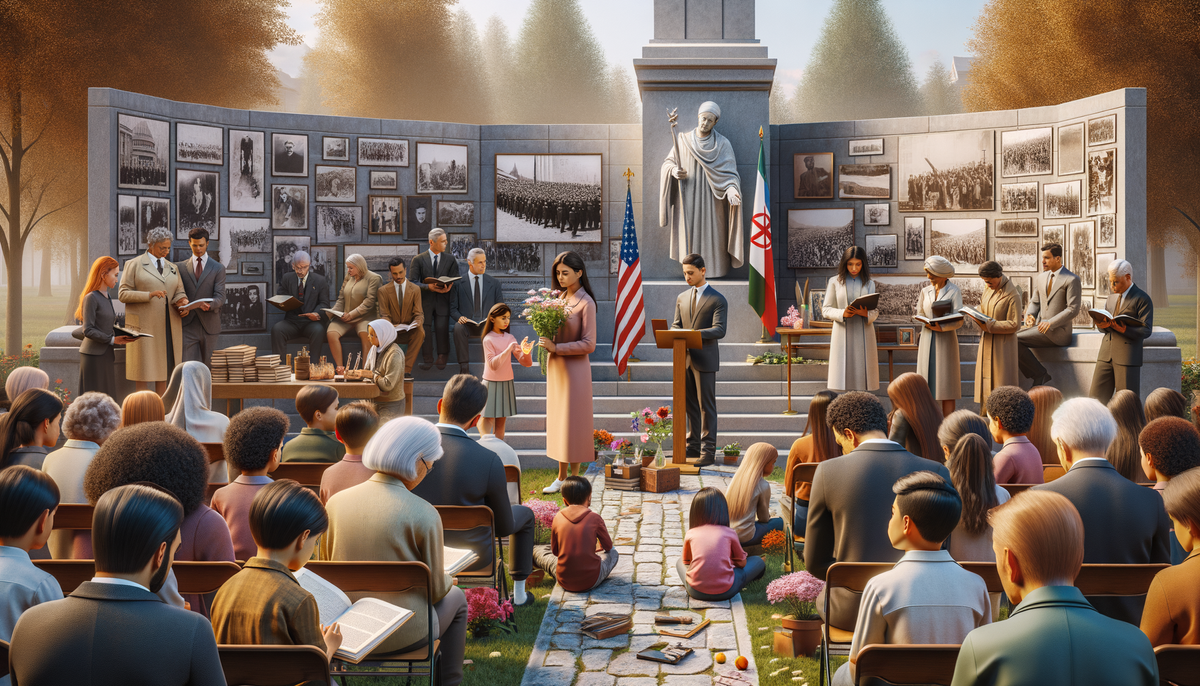Holocaust Remembrance Day 2025: Honoring History and Confronting Modern Challenges
This in-depth exploration of Holocaust Remembrance Day 2025 covers its history, significance, and ways professionals can engage in education and remembrance efforts.

Published on April 23, 2025
Holocaust Remembrance Day 2025: Honoring History and Confronting Modern Challenges
The observance of Holocaust Remembrance Day is a pivotal moment each year, with January 27 marking the International Holocaust Remembrance Day. This year, in 2025, the commemoration holds particular significance as it marks the 80th anniversary of the liberation of Auschwitz-Birkenau. It is a day not only to honor the memory of the six million Jews and millions of other victims persecuted and killed by the Nazi regime but also to actively confront antisemitism and educate future generations on the importance of human rights.
The Historical Significance of Holocaust Remembrance Day
International Holocaust Remembrance Day is observed on January 27, the anniversary of the liberation of Auschwitz-Birkenau by the Soviet Red Army in 1945. The day serves to honor the memory of those lost and stands as a reminder of the devastating consequences of intolerance and hatred.
Established by the United Nations General Assembly in 2005 through resolution 60/7, this day calls on member states to implement educational programs to prevent future genocides and to actively preserve Holocaust-related sites. It explicitly rejects Holocaust denial and condemns any incitement, harassment, or violence based on ethnic origin or religious belief.
For more on these origins, see the following sources: Fox News, Haaretz.
Current Relevance and Educational Importance
The Holocaust was not an inevitable event but the result of deliberate and systematic efforts by the Nazi regime. Education centered around the Holocaust emphasizes understanding these historical events to combat the rising tide of antisemitism and bigotry today. The lessons learned from this dark chapter in history are crucial in advocating for a future free of hate.(Source)
In 2025, special commemorations will take place, including survivor stories and public discussions. The United States Holocaust Memorial Museum will host a virtual event featuring survivors who were deported from Hungary in 1944.
National and International Commemorations
While International Holocaust Remembrance Day is globally recognized on January 27, other dates also mark the remembrance in various countries. In Israel, Holocaust remembrance is officially observed on Yom HaShoah, falling on the 27th of Nisan in the Hebrew calendar. This includes nationwide silences, the closure of businesses, and commemorative public events, reflecting deep respect and memory among local communities.
For a detailed overview of global and national commemorations, you can refer to resources such as the United States Holocaust Memorial Museum.
Key Themes: Memory, Education, and Confrontation of Hate
Holocaust Remembrance Day emphasizes the importance of remembering the past to prevent future atrocities. It is dedicated to honoring the victims and survivors and reinforcing the global commitment to human rights.
Internationally, this day also serves as a bulwark against Holocaust denial and distortion of historical facts. It is a time to reaffirm the need to confront antisemitism and bigotry wherever it arises.
Practical Takeaways for Professionals in Holocaust Remembrance
- Enhancing Educational Programs: Professionals in Holocaust education are encouraged to develop more inclusive and comprehensive programs that cover less-known aspects of the Holocaust era.
- Utilizing Technology for Wider Reach: Virtual platforms and digital storytelling can be powerful tools to engage a global audience and ensure the lessons of the Holocaust reach younger generations.
- Promoting Interfaith and Intercultural Dialogues: Encourage dialogues between different faiths and cultures to foster mutual understanding and respect.
Our expertise in developing educational content and technology-driven solutions plays a crucial role in these initiatives, ensuring that the story of the Holocaust and its lessons are preserved for future generations.
Call to Action
We invite educators, policymakers, and businesses to explore our resources and join us in fostering a deeper understanding of Holocaust history. Visit our website to learn more about our programs and how you can contribute to this vital cause.
Join us in making a difference.




